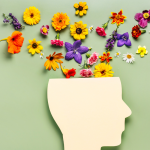
Practical Mental Health Tips to Use at Home Every Day
September 12, 2025
Understanding the Social Pressures Teens Face in School Today
September 26, 2025
Grief is an inevitable part of the human experience, yet few people are prepared for the way it can deeply affect not just our emotions but our overall mental health. The loss of a loved one, a relationship, a job, or even a sense of identity can trigger waves of sadness and emptiness that extend far beyond the initial event. While grief is often associated with sorrow and mourning, its effects run deeper, influencing how our brains function, how we process emotions, and how we cope in daily life.
Understanding the relationship between grief and mental health is essential, as unaddressed grief can lead to long-lasting struggles. By exploring the ways grief affects us internally, we can better recognize when to seek support and initiate the healing process.
Grief and the Brain
When we discuss the impact of grief on the brain, it’s more than just a metaphor. Research shows that grief affects neurological pathways and alters the way the brain processes information. The stress caused by grief can activate the amygdala, the part of the brain responsible for processing fear and emotional responses. At the same time, the prefrontal cortex, which helps regulate emotions and decision-making, may become less active.
This imbalance can make everyday life feel overwhelming. Concentration becomes difficult, memory lapses are common, and the ability to manage stress decreases. In some cases, grief mimics the effects of trauma, putting the brain in a state of hyper-alertness where the smallest triggers can resurface waves of sorrow.
This neurological disruption helps explain why grief often feels all-encompassing. It’s not just emotional—it’s a physical and mental shift in how the brain is operating.
How Does Grief Impact Mental Health?
The question “how does grief impact mental health?” doesn’t have a single answer, because it manifests differently for everyone. However, several common mental health challenges are closely tied to the grieving process.
- Depression
Persistent sadness is expected in grief, but for some, the feelings intensify into clinical depression. Depression linked to grief can include hopelessness, lack of motivation, disinterest in previously enjoyed activities, and thoughts of worthlessness. - Anxiety Disorders
Grief can trigger overwhelming worry, panic attacks, or a sense of dread about the future. Some people may fear more losses or become overly protective of loved ones, leading to heightened anxiety. - Post-Traumatic Stress Disorder (PTSD)
In cases of sudden or traumatic loss, PTSD may develop. Intrusive memories, flashbacks, or an inability to stop replaying the moment of loss are signs that grief has transitioned into a traumatic stress disorder. - Complicated Grief
For many, grief gradually lessens over time. But in cases of complicated grief (sometimes called prolonged grief disorder), the pain remains sharp and unrelenting even after months or years. This can prevent a person from moving forward and make day-to-day life extremely difficult. - Substance Use Disorders
Some people turn to drugs or alcohol as a way to numb their grief. While this may bring temporary relief, it often worsens mental health challenges in the long run and increases the risk of addiction.
The Long-Term Mental Health Effects of Grief
While grief may begin as an immediate reaction to loss, it often leaves lasting effects on mental health. Persistent changes in mood, sleep disturbances, and difficulty concentrating are common. For some, grief reshapes how they view themselves and the world around them, leading to ongoing struggles with trust, security, and meaning.
The impact can also extend to physical health, as stress hormones released during grief weaken the immune system and increase the risk of conditions like heart disease or high blood pressure. When the mind is weighed down by unprocessed grief, the body often suffers alongside it.
Recognizing When to Seek Help
It’s important to remember that grief does not follow a linear timeline, and there’s no “normal” way to experience it. However, if grief leads to feelings of despair, self-isolation, or an inability to function in everyday life, professional help may be needed. Therapies such as cognitive behavioral therapy (CBT), grief counseling, or support groups can provide healthy tools for coping. In some cases, medication may also help manage depression or anxiety linked to grief.
Acknowledging the connection between grief and mental health is not a sign of weakness—it’s a step toward healing. By addressing grief head-on rather than pushing it aside, individuals can reduce the long-term mental health risks and begin to rebuild a sense of balance.
Moving Forward with Healing
Healing from grief does not mean forgetting the loss—it means learning how to carry it in a way that doesn’t control your life. Practices such as mindfulness, journaling, meditation, and connecting with supportive friends and family can help the brain gradually rewire and adapt to life after loss.
It’s also important to give yourself permission to feel. Society often places pressure on people to “move on” quickly, but grief has no expiration date. Recognizing and validating your emotions is a crucial part of recovery.
Get Help Today
Grief is one of the most profound emotional experiences we can endure, and its impact extends far beyond sadness. By understanding the grief impact on brain function and the ways it intertwines with mental health, we can better appreciate why grief feels so overwhelming—and why it’s vital to seek support when needed.
So, how does grief impact mental health? It changes the way we think, feel, and function, sometimes long after the initial loss. But while grief may leave lasting marks, it does not have to define your life. With compassion, support, and the right mental health tools, healing is always possible.
_________________________________________________________________________________
Looking for treatment for an eating disorder, anxiety, depression, trauma, or postpartum mood disorder?
Evolve Counseling Services is a specialized team of Licensed Therapists providing treatment in Paoli.



